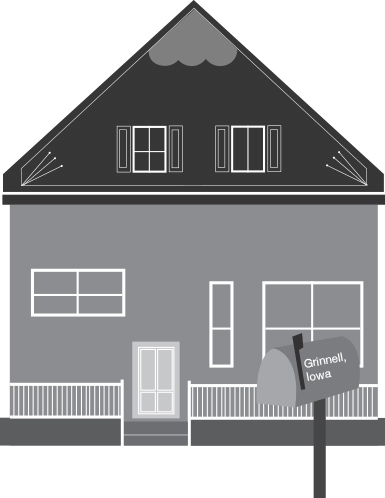Grinnell College’s relationship with the town of Grinnell is wrought with complex ideological and experiential differences. Students who grow up in Grinnell, attend Grinnell High School (GHS) and enroll at the College are in the unique position of speaking to the intricacies of this relationship, having experienced life as a resident in the small town of Grinnell and as a member of the exclusive community created by the College.
These students’ perspectives on the town-college relationship are as diverse as Grinnell’s student body.
Luc Moisan ’17, son of Professors Claire and Philippe Moisan, French and Arabic, addressed the issues of perception that color how students and residents of Grinnell relate to each other.
“There is some animosity between the town and the College. I’ve heard a lot of people talk about how the town can be kind of racist. The town can harbor some problematic beliefs, especially for the political ideology of the College, but the College has a very elitist view of the town,” he said.
The hostile beliefs of a few community members tend to be mistakenly proscribed on the entire community. Kate Menner ’18, daughter of Professor Barb Trish, Political Science, and the third child in her family to attend Grinnell, spoke to GHS students’ relationship with the College.
“People at the high school have a lot of respect for the people who go to Grinnell. [High schoolers] take classes here and know how rigorous it can be, and how hard the [college] students work. There are anomalies who cast judgments of [college students] but I’d say that’s just a small percentage,” she said, addressing how students tend to think of the community as close-minded.
“We love the College, we embrace the College. It’s sad that the college students think of [the town] like that.”
Students from town also face the difficulty of experimenting with identities in college, while remaining in the community that has known them all their lives.
“I didn’t realize how different [the College] would be. I was ready for college, but I went in with the mindset that it was going to be the same as the town. I wasn’t really prepared for how different it was and that made the transition hard,” said Lauren Fenton ’17, who has lived in Grinnell since age five and whose immediate family is not affiliated with the College.
Hannah Burt ’15 also spoke about the claustrophobia of navigating college life within the small town of Grinnell. Burt is the daughter of Associate Director of Facilities Management Mike Burt, and Diane Burt, receptionist at SHACS. All three of her siblings attended or currently attend Grinnell College.
“If I go to the public library or McNally’s, there’s always people I know. It’s nice, but sometimes I just need to be in my college student space. Most people get that sense of exploration in a new place when they go to college, which is something that I never really had,” she said.
For other students, this proximity is a positive factor.
“I visited other colleges, but they didn’t have the feeling or social atmosphere that I was looking for. [Grinnell] ended up being closer to home, and I thought it would be better for me to be close to my parents and be a place where I’m comfortable,” Menner said.
Many Grinnellians traverse continents to arrive on campus, but these students only had to move a few blocks. However, this short distance correlates with seismic changes in perception.
“Now that I’m on campus, the world shrinks around the College and the rest kind of disappears. The town seems like a caricature of what it once was,” Moisan said.
Fenton also noted how the differences between the spheres of college life and town life rarely intersect.
“The biggest change I’ve experienced at the College is gaining awareness of other people, relating to people on a human level rather than a community level. A lot of kids in my high school didn’t know how to handle themselves when difference came. I have a chance to be in a situation to learn how to be with others and appreciate others and that doesn’t really happen in the community,” she said.
Although she is poised to graduate in the spring and potentially move away from the community in which she has lived her entire life, Burt noted that going to college in the same town she lived did not prevent it from being a transformative experience.
“Grinnell has helped me establish my identity as a person. Through Grinnell, I’ve really become radicalized politically and found what I’m passionate about,” she said. Grinnell really helped me figure out who I was. I know that’s so cheesy.”



































































